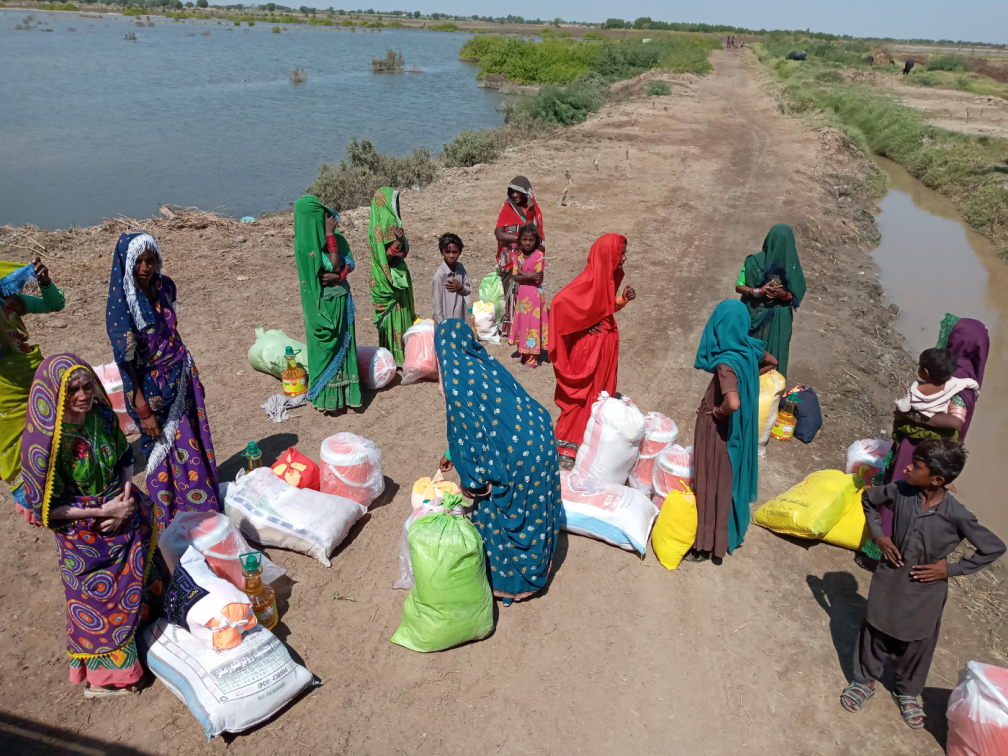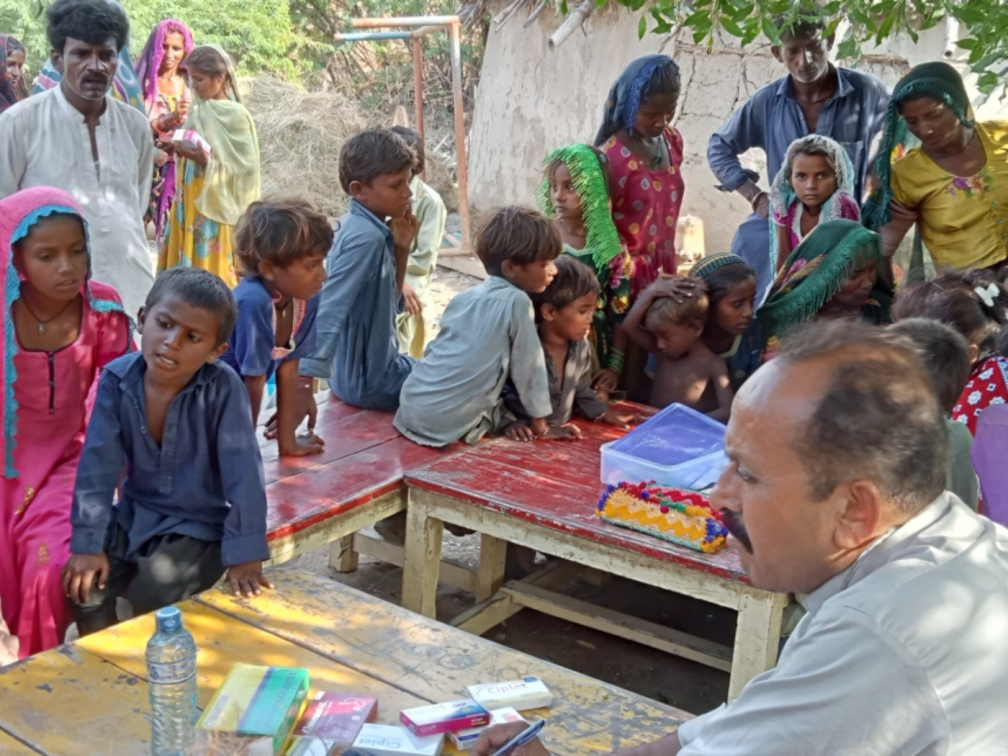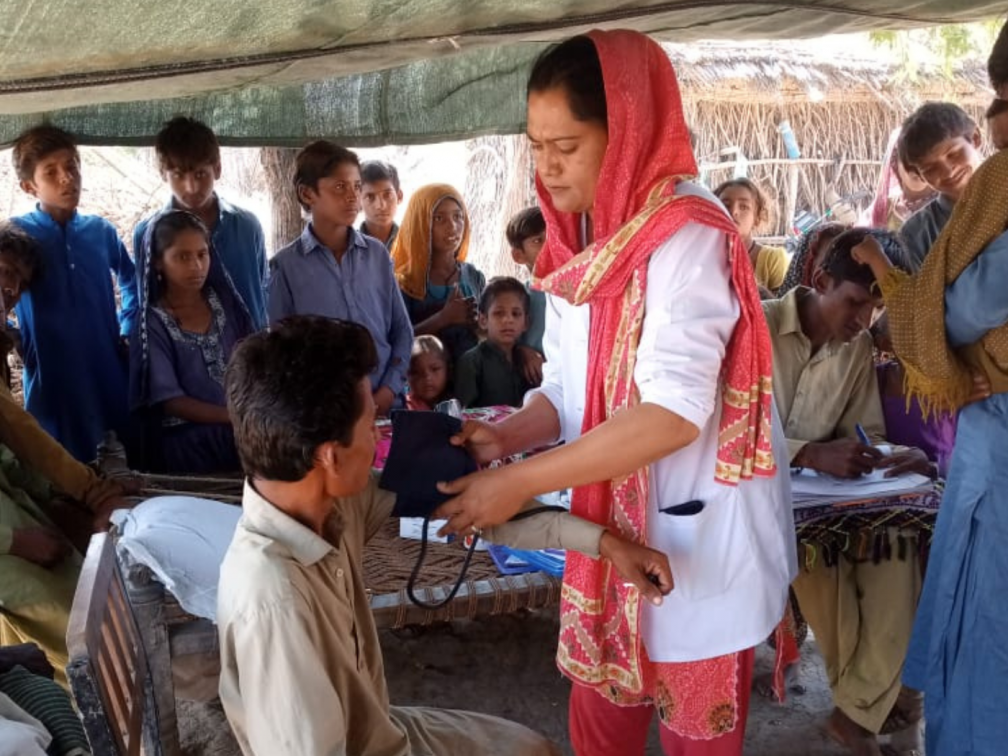The bi-weekly report produced by the OCHA Humanitarian Advisory Team (HAT) in Pakistan on November 25th stated, ‘As of 11th November, the National Disaster Management Authority (NDMA) has recorded 1,739 deaths and 12,867 injuries since mid-June. In addition, more than 2.2 million houses have been damaged or destroyed, 13,115 km of roads damaged, 439 bridges destroyed, and over 1.1 million livestock lost.
‘Cases of water and vector-borne diseases and acute respiratory illnesses, especially among children and older adults, remain a key public health challenge in flood-affected areas of Sindh and Balochistan. As of 8th November, according to World Health Organization (WHO), around 8 million flood-affected people need health assistance, including the provision of essential medical supplies and access to essential health care.’
One of the main issues affecting people in the Sindh province of Pakistan is food security for poor families in rural areas who have lost livestock and crops. In some of the worst affected areas, families have been unable to plant crops for the coming season as flood water is still present. Many people have become unemployed as a result and for vast numbers of poor people, providing food for their families is a major struggle.
Columbans here have been responding to these basic human needs of poor people, and as winter approaches it is clear that these families will continue to need our support for a number of months more at least. Through the generosity of Columban donors world-wide, especially through the Columban network, including a substantial contribution from Misean Cara, a branch of Irish Government who provide overseas aid channeled through missionaries, we have been able to assist some of the most vulnerable people in various areas of the Sindh province.
In the last two months, we have been able to assist 267 families using a generous €15,000 donation received through the Columbans in Ireland. We were able to provide these families with a food ration (flour, rice, cooking oil, milk powder, tea, sugar, pickle, spices), three mosquito nets, a health kit (soap washing powder, disinfectant, cotton wool) and a 17 liter water cooler to carry clean drinking water. Most of the recipient families work on the land of local landlords and with the loss of crops and livestock, they have gone further into debt. Education has been affected for the children and there is a major health crisis because of the unsanitary situation and unsafe drinking water. Our donation has supported them as they try to re-build their lives and their homes.
The 267 families we assisted lived in various parts of Sindh: – 150 families live in Khipro where Columban Fr. Louie works and the people are from the Parkari Kohli indigenous community. A further 27 families who were assisted, live on the outskirts of Hyderabad city, near the bypass, having moved from rural areas to the city in search of work. Most of them are also from the Parkari Kohli indigenous community, although five families are members of the Sindhi Bheel indigenous community.
A further 90 families were helped in the Tando Adam area, which was badly affected by flooding because of its closeness to the River Indus, which burst its banks in many areas. The people we assisted here are members of the Kutchi Kohli indigenous community.
Responding to the above mentioned medical needs, the Columbans, from late September until present, have been operating a medical outreach team, from Joti Centre, the Educational and Cultural center of Hyderabad diocese, whose director is Columban Fr. Tomas King. In the 11 weeks that this medical outreach has been in operation, over 6,000 patients have been seen; these patients are from poor families in rural areas where no other medical outreach team has visited.



